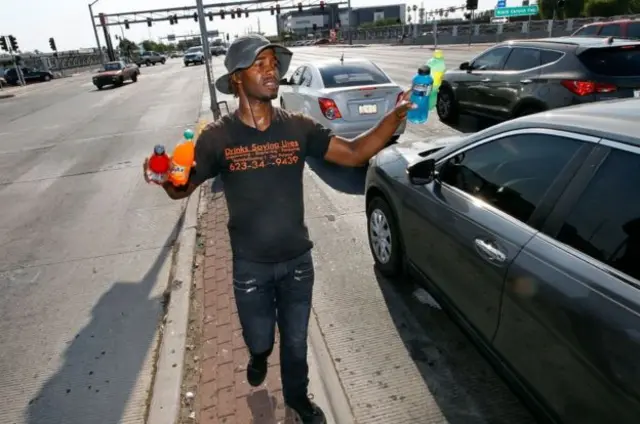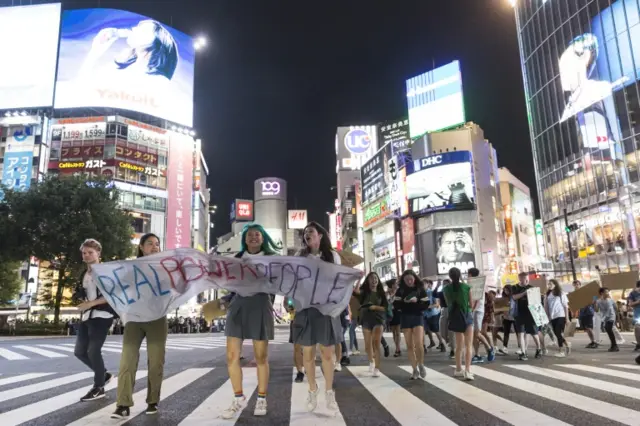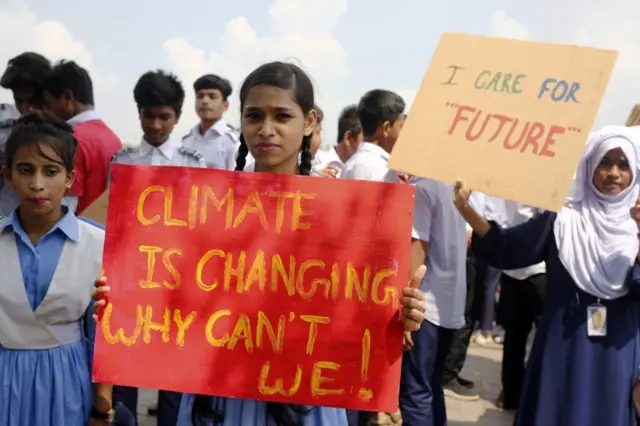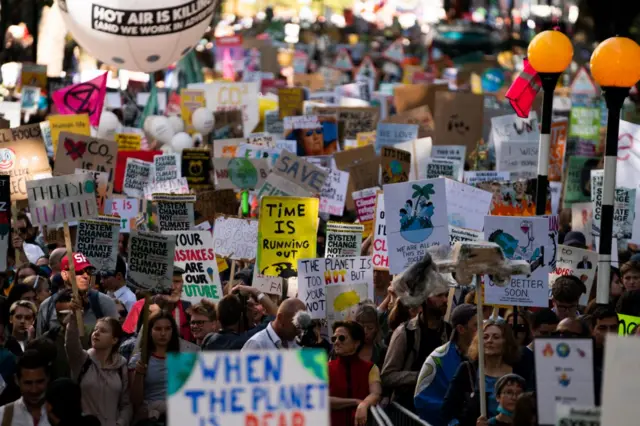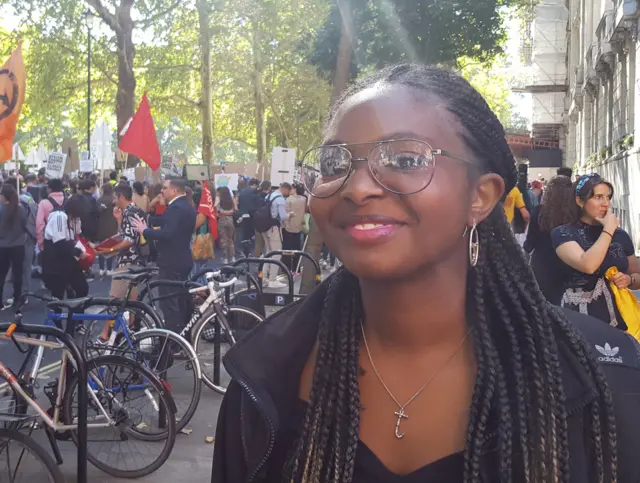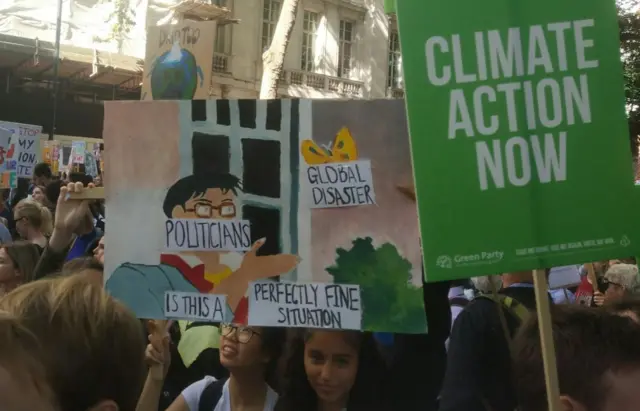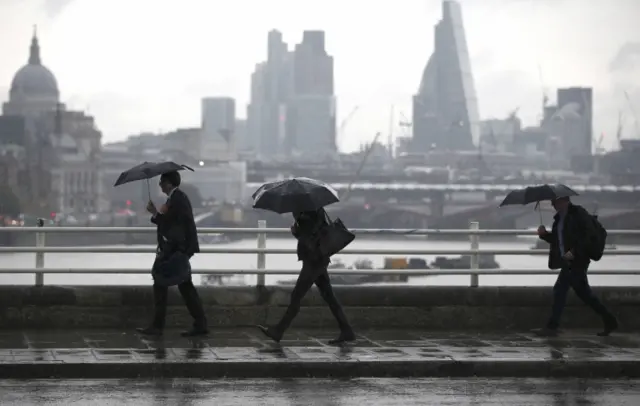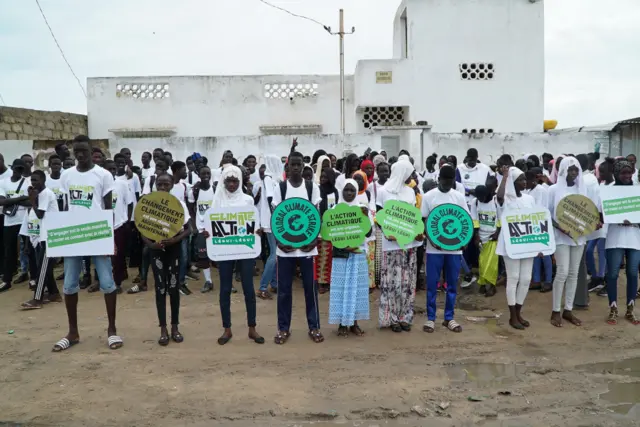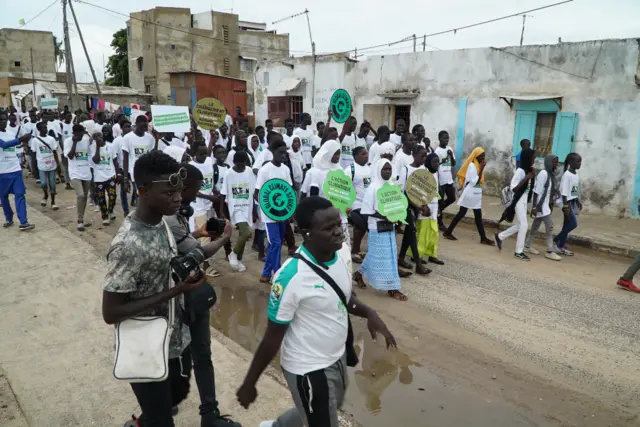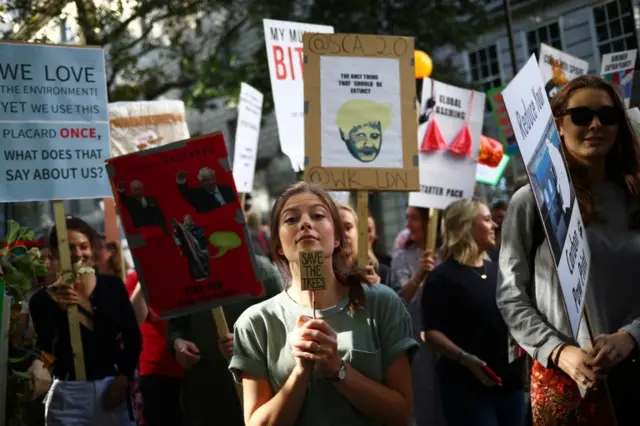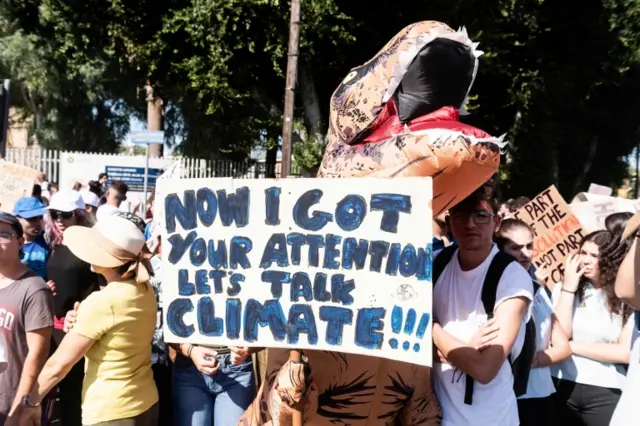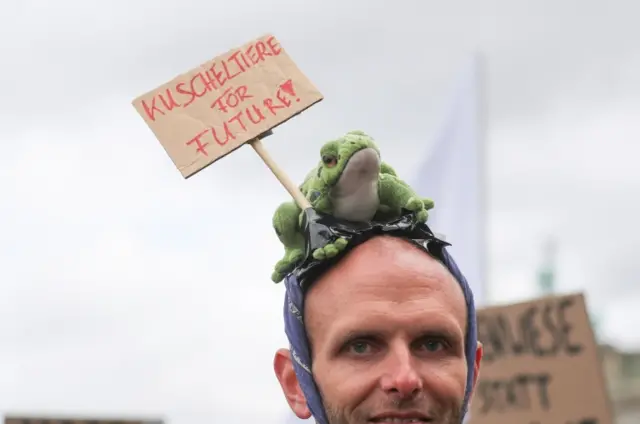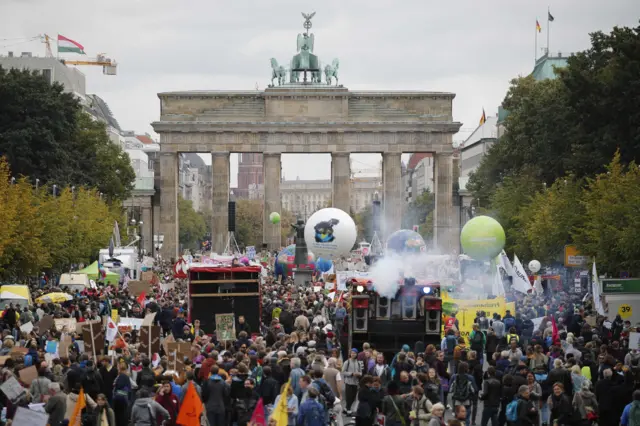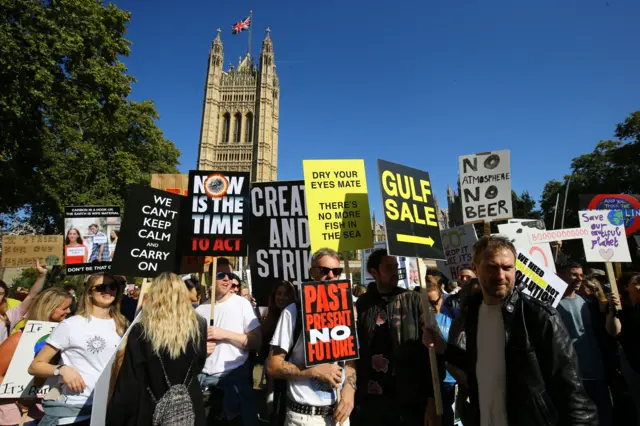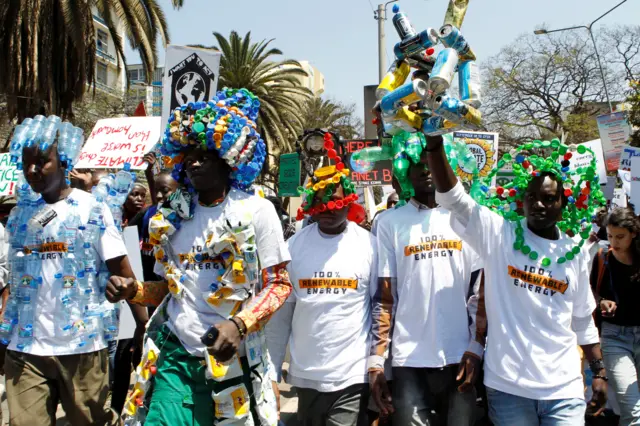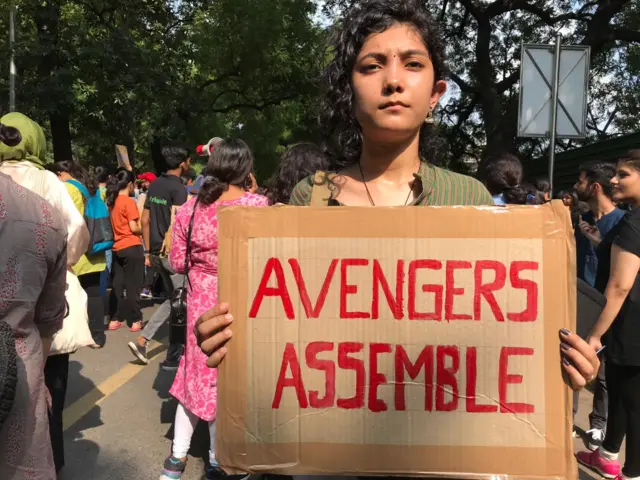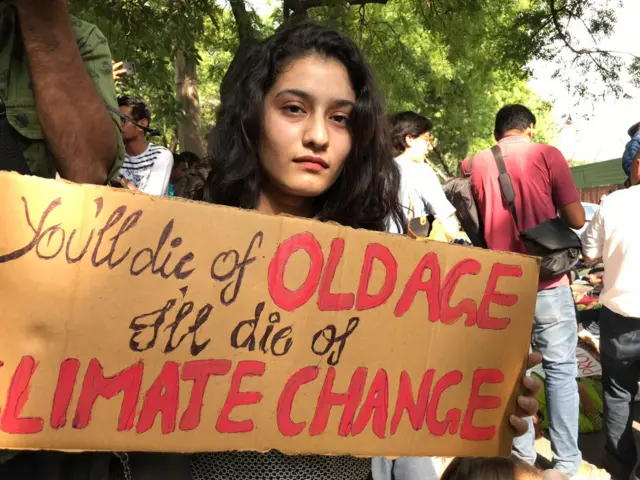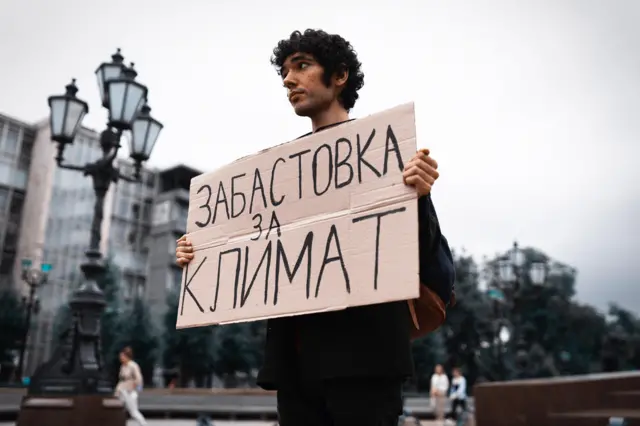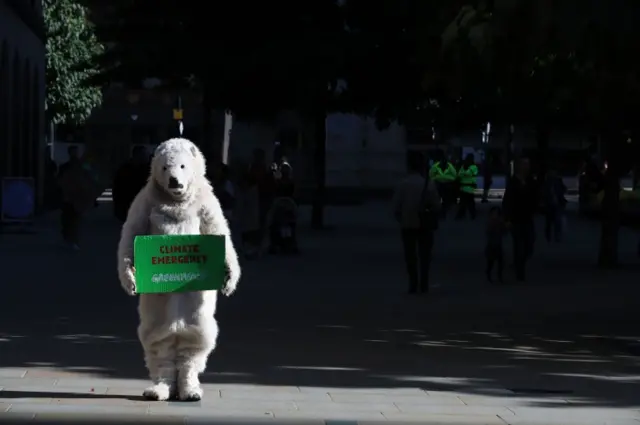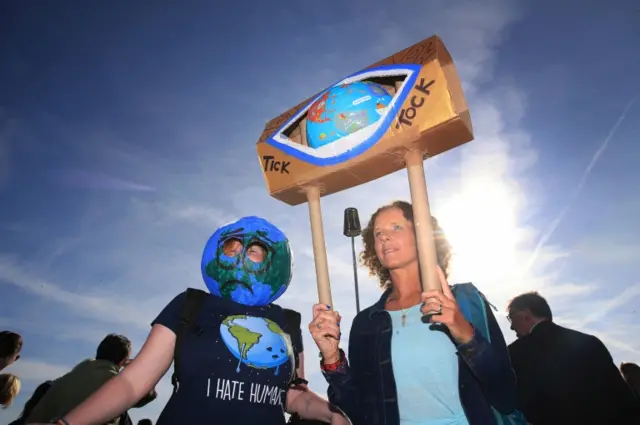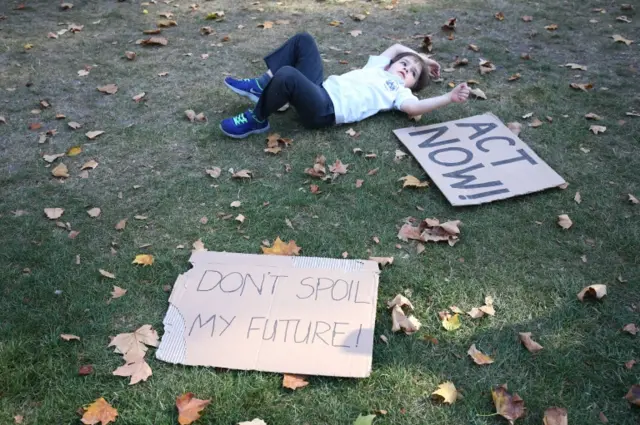All corners of the worldpublished at 14:38 BST 20 September 2019
Ashitha Nagesh
BBC News, London
From South Africa to Ukraine, Germany to the Solomon Islands, the scale and co-ordination of the climate strikes today has been phenomenal.
It shows, if nothing else, how the climate crisis has now become a mainstream, global issue of increasing urgency.
And of course, we still have more to come later on when the US wakes up.
Here are just some of the many places across the world where children and adults have held protests so far.
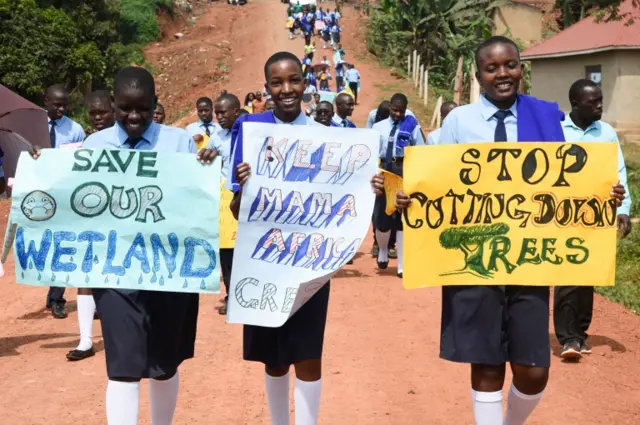 Image source, AFP
Image source, AFPWakiso, Uganda
 Image source, Reuters
Image source, ReutersMarovo Island, Solomon Islands
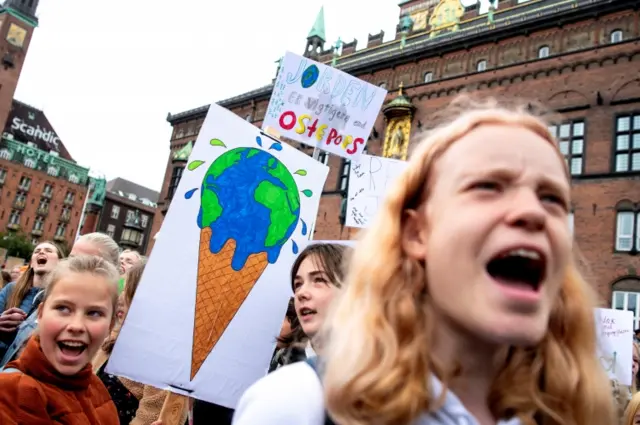 Image source, Reuters
Image source, ReutersCopenhagen, Denmark
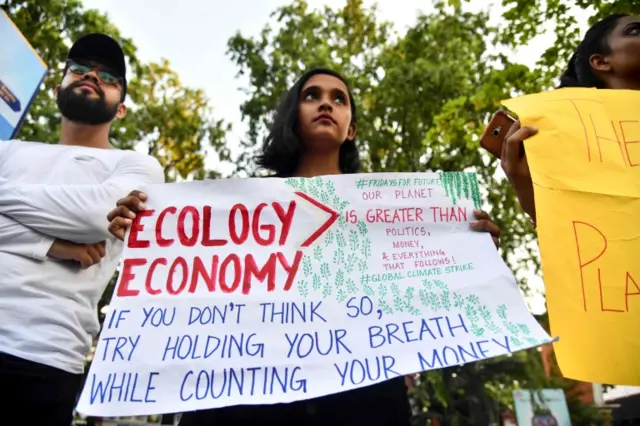 Image source, AFP
Image source, AFPGuwahati, India
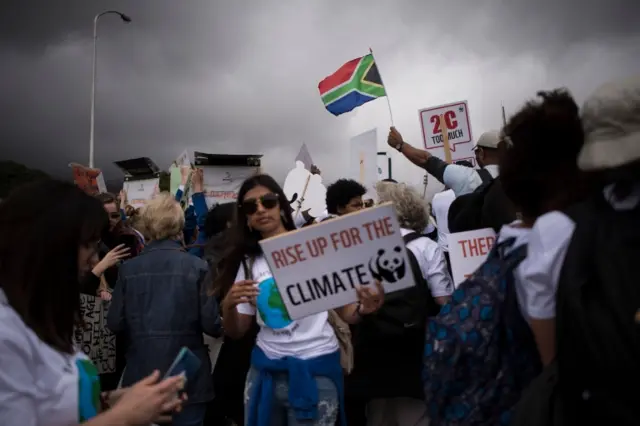 Image source, AFP
Image source, AFPCape Town, South Africa
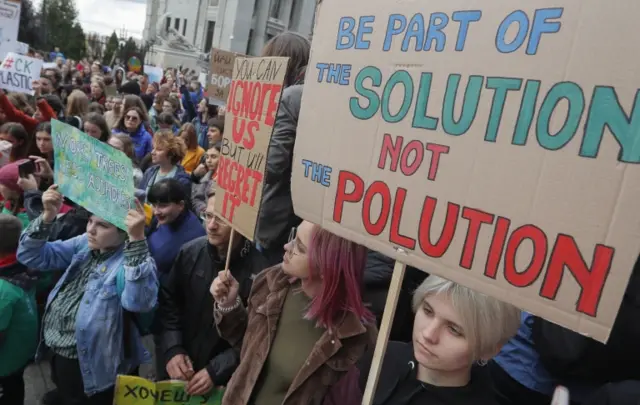 Image source, EPA
Image source, EPAKiev, Ukraine
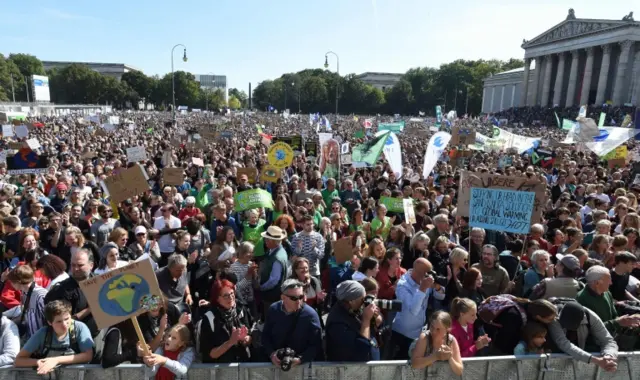 Image source, AFP
Image source, AFPMunich, Germany
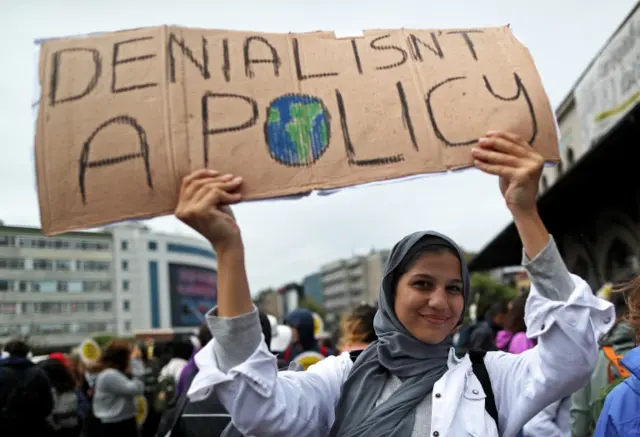 Image source, EPA
Image source, EPAIstanbul, Turkey
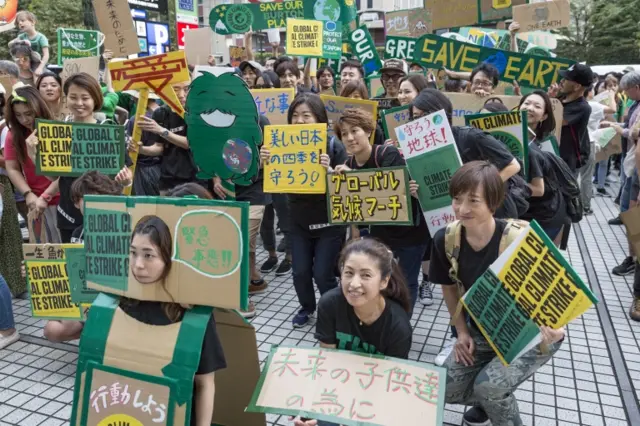 Image source, Getty Images
Image source, Getty ImagesTokyo, Japan
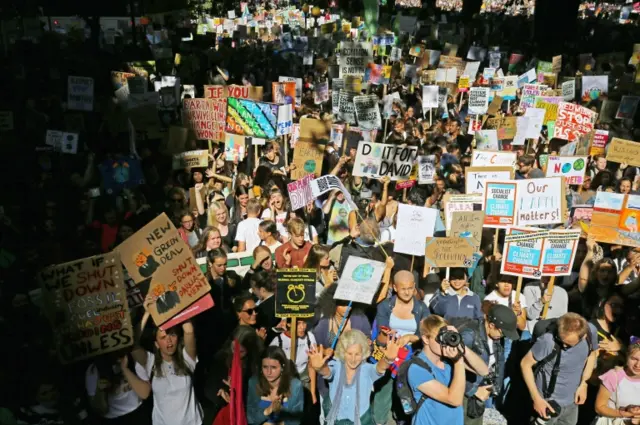 Image source, PA
Image source, PALondon, UK
